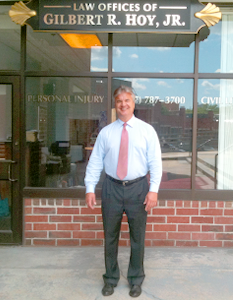Without lawyers, there can be no enforcement of the law. Without law, there can be no justice.
If you are ever given the opportunity, take a trip to 1 First Street, Washington D.C. Your GPS should direct you to a location right across the street from the U.S. Capitol Building. There, you’ll find what appears to be a massive temple—with marble steps and towering pillars guarding the entrance. You have arrived at the United States Supreme Court.
The most important detail of this impressive structure, however, is not its homage to Greco-Roman architecture. Just above the top of the pillars, an inscription is etched into the white stone, reinforcing the fundamental principle of American law: “EQUAL JUSTICE UNDER LAW.”
Over thousands of years of recorded history, the profession of law has developed and evolved. From Hammurabi’s Code to the ratification of the U.S. Constitution, the law has been regarded as a nearly sacred part of every civilization. Laws provide structure, equity, and harmony in society.
As a result, those who endeavor to study and practice the law have been both respected and revered. Leaders of great nations, including many of our own American presidents and legislators, have been educated in the field of law, and have developed their skills in leadership, negotiation and compassion, often from exploring the law. Regardless of wealth or social status, people throughout history have deemed lawyers to be symbols of equality and justice.
Sadly, that perception is no longer true for many people. If one were to ask a group of random strangers what they picture when they hear the word “lawyer” or “attorney,” you aren’t likely to receive a flattering response. Cynics of the profession would not envision honorable men defending the poor and sick from an undeserved fate. Where people once envisioned Atticus Finch, they now see a shady figure in an expensive suit. Greed, deception and corruption now blacken a profession that was once distinguished for being one of justice, equality and compassion.
The source of this distrust and dislike for lawyers is astonishing, considering the history and prominence of legal professionals. Yet the disdain for lawyers is not completely without merit. Like any other profession, the law is susceptible to the flaws and imperfections of human nature. In today’s profit-driven society, however, the notion that all lawyers are self-interested and unscrupulous is a misconception. In truth, there are many lawyers who do not fit this unsavory description.
So what, then, sets these truly great lawyers apart? In order to adequately answer this question, one must understand the purpose of a lawyer.
Regardless of the type of law, criminal or civil, a lawyer should be a trusted representative, confidant, and resource. A lawyer, therefore, must not only have a firm grasp on the law and its subtleties, but also a passion for helping those in need. He/she must not only understand their client’s rights, but their wants and needs as well.
Open lines of communication, especially in today’s tech-driven society, are supremely important. The advent of email has changed things significantly, yet the value of face-to-face interaction cannot be overstated. Good lawyers must provide timely information and wise counsel to their clients, with whom the decisions ultimately rest.
The law is not merely a service provided by the highly educated—it is a responsibility to uphold and enforce principles of justice. A good lawyer stands confidently beside his/her client, regardless of innocence, guilt, right or wrong. He/she understands that despite any possible reservations, there is something greater at stake. A practiced lawyer knows that there is no such thing as black and white, only shades of gray. He/she will work late into the night to ensure that every resource has been tapped and every line has been practiced.
He/she does all of this because the law, in all its formality, is imperfect. Laws, made by flawed individuals, can be unsound themselves, and, therefore, difficult to interpret. Good lawyers, in understanding the flexibility and fluidity of the law, use this quality to their advantage. An attorney believes in the client’s best interests and will work tirelessly to see that they are represented and fought for. For those who cannot defend themselves because of a lack of knowledge, skill, or ability, the help of a personable, confident and passionate lawyer is paramount.
These are the inherent qualities of a good lawyer. Without them, the relationship between an attorney and a client can never reach the ideal level of trust. It is true: not all attorneys are as admirable as we would hope them to be. All too often, people may become lawyers for the wrong reasons or are eventually consumed by the ruthlessness of profit.
Here, at the Law Offices of Gilbert R. Hoy, Jr. and Affiliates, we like to believe that we know what makes a good lawyer. After spending more than two decades in practice, we understand that people deserve only the best legal representation, and we have strived to honor that goal by welcoming aboard some of the finest personal attorneys Massachusetts has ever seen.
If you or a loved one has been affected by a personal injury accident, please contact our team of expert personal injury attorneys, who will pursue your claim with unwavering dedication. Call us at 617-787-3700 or email us at info@gilhoylaw.com for your free and confidential consultation. Like our forefathers, we believe in equal justice under the law, and we will stop at nothing to make sure that you receive it. Your needs are our top priority!



